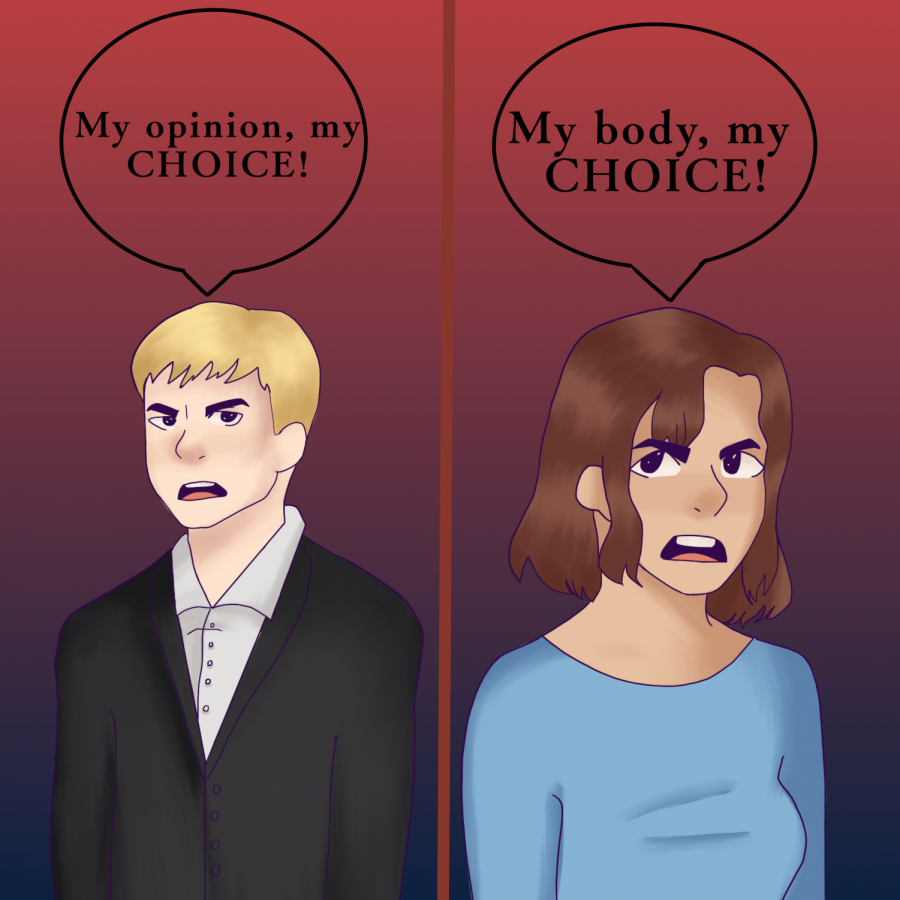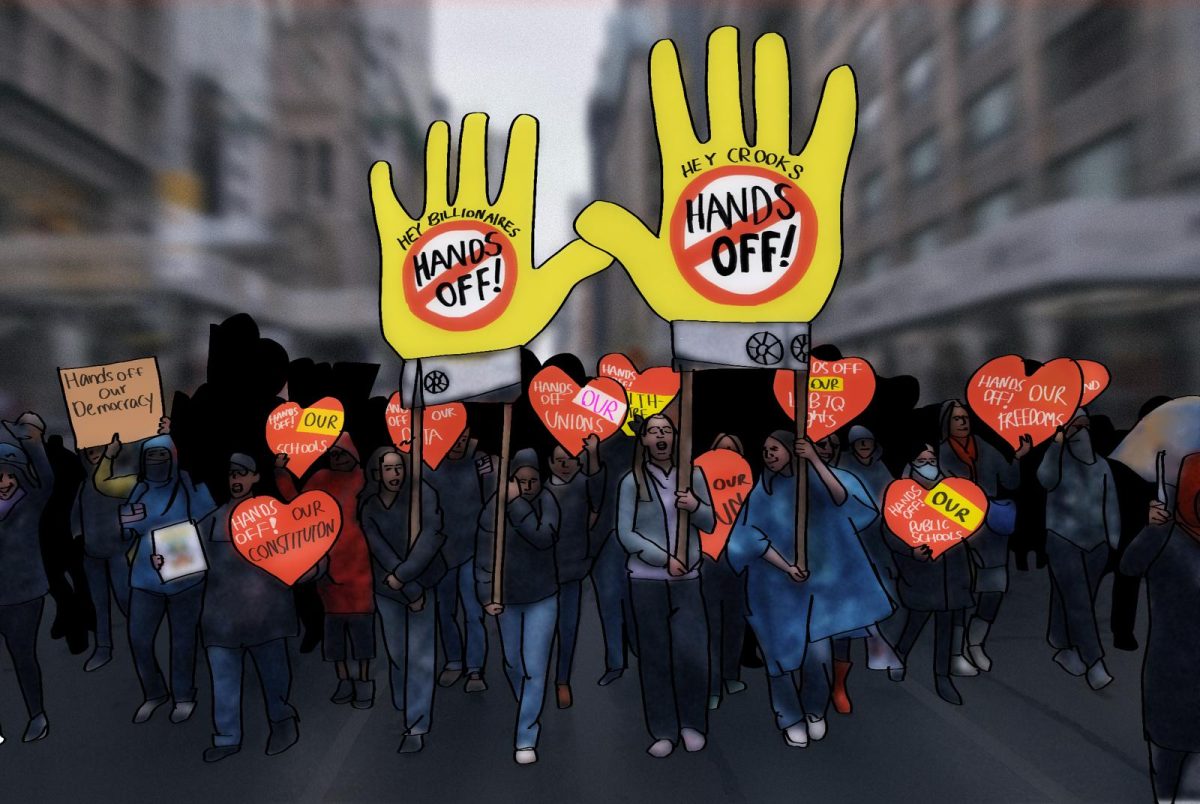Reproductive Rights Are Human Rights: Alabama Erred
May 25, 2019
Alabama’s Human Life Protection Act (House Bill 314) was signed into law by governor Kay Ivey on May 15, effectively banning abortions in the state with exceptions only in the case of “serious risk” to the mother’s life. Without exemptions for victims of rape and incest, news of the divisive bill swept through the nation, adding fuel to the ongoing fiery debate over abortion rights in America. While some conservative lawmakers extended their support, abortion rights activists and even so-called “pro-life” advocates, such as President Donald Trump, criticized the bill for its extremity. House bill 314 is indeed one of the worst pieces of legislation to be passed on the topic in the United States. Not only does it restrict a women’s bodily autonomy and find foundation in practices proven to be inefficient, but it violates the very foundation of American politics: the separation of church and state. Though its blatant unconstitutionally is likely by design, providing a direct challenge to the 1973 precedent Roe vs. Wade, it can be excused or overlooked.
Mentions of abortion and personhood can be found in the traditional texts of many ancient religions. However, their takes on the topic vary – Christianity, of course, asserts the life starts at the moment of conception, but Judaism says that personhood begins at a baby’s first breath, while Islam defines it as the moment when the soul enters the body (usually around four months of pregnancy). The voices of the Christian lawmakers who push abortion bans drown out the perspectives of the diverse populations of the United States, who are often underrepresented in the government of their own communities. Though constitutionally insured religious freedom ensures each person’s right to their own personal religious beliefs, that right does not extend to forcing others to conform to that ideology. The Bible may tell its followers to honor the earliest forms of “life,” but those followers have no right to take their religious beliefs and write them into laws forcing young girls to birth their rapist’s baby. Religion will always influence our lawmakers to some extent – it is paramount to some people’s identity and moral code – but it should not be forced upon their constituents who do not even share the same faith. The pro-choice movement recognizes this; many people who identify as pro-choice find abortion immoral, and would never consider it for themselves, yet they understand that their personal beliefs or religion are not shared by the world. The idea that life begins at conception is religious and philosophical, but treating it as a medically established fact undermines the separation of church and state that this nation was built upon.
“Women’s rights are being restricted in regressive ways; this abortion ban will not limit the number of abortions performed, only the number of safe ones,” sophomore Alexandra Torres said.
The immoral nature of the ban is only furthered by how ineffective it is predicted to be in actually reducing the number of abortions that occur annually. This research, for example, examines 23 different laws passed by state governments in an effort to restrict the number of abortions, and their influence on the abortion rates of the affected areas. None of the policies enacted by state governments has had a significant impact on the incidence of abortion from 1982 to 1992. Similar trends can be seen in nations around the world, such as in Brazil where abortion rates went up from 10–15 up to 30–40 abortions per 1,000 women after the procedure was banned. The difference is not in the number of abortions, but only in the safety of them. Illegal abortions, commonly referred to as ‘back-alley’ abortions, may be self-induced by a women by herself or conducted by a provider who may or may not be a medical professional. They are often held in unsanitary locations, with no government regulation or accountability in the event of malpractice. As a result, the mortality rate from abortion is much higher in nations where it is outlawed, and unsafe abortion continues to be one of the leading causes of maternal death worldwide. The desire to terminate a pregnancy is as old as pregnancy itself; outlawing it will not disband the practice nor significantly reduce its prevalence. It is up to lawmakers to decide where they want American women to have their abortions – in a clean, safe clinic with trained professionals or under risky conditions on their own.
So what will reduce abortion rates, if not banning it outright? Comprehensive sex education in schools has been proven to do so, yet Alabama Title Code 16 requires that sex education within Alabama be centered on abstinence from sexual activity as the only reliable form of preventing pregnancy and STDs, and requires teachers to inform their students that “Abstinence from sexual intercourse outside of lawful marriage is the expected social standard for unmarried school-age person,” further stigmatizing conversations about sexual health in young adults. Free and low-cost birth control is a documented cause of lower rates of abortion, yet so-called TRAP laws enacted by the Alabama legislature, combined with “pro-life” protesters, have driven the Planned Parenthood clinics that provide these services out of business. Even access to safe prenatal care, paid maternity leave, and quality child education correlate to less abortion. Yet in Alabama, prenatal care is not significantly subsidized, businesses are required to provide zero days of paid maternity leave, and the state ranks 50th in the nation in terms of public education. While state legislators crank out bills to slowly chip away at abortion rights, they too easily ignore the root of the issue – it is hard, in many cases impossibly so, to be a mother in America if one does not have a certain amount of socioeconomic privilege. In a nation where healthcare is not guaranteed, telling women to put children “up for adoption” assumes them to have the resources to even afford to be pregnant, not to mention the issues with the American foster care system.
Despite the supposed noble cause of the self-described “pro-life” movement, the ideology in practice seems to be more about control than about protecting the “sanctity of life.” From a party legislature that is working to implement mandatory drug testing in order for people to receive food stamps, and largely ignores the issues of discrimination and police brutality within their own state, “anti-choice” or “pro-birth” seem to be more fitting terms. The Alabama state legislature has truly overreached their bounds with this invasive religious law that deprives women of their own autonomy. With impending lawsuits from the American Civil Liberties Union (ACLU) and Planned Parenthood, House Bill 314 should quickly be out to rest, hopefully before a Supreme Court ruling is necessary.













